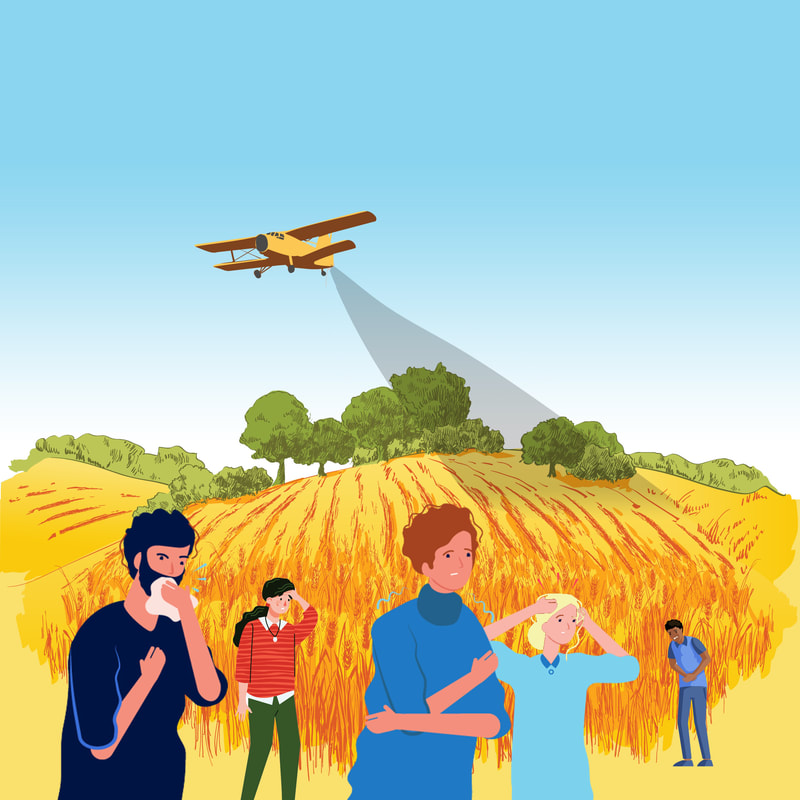The presenting patient, a previously healthy, 69-year-old woman returning from a vacation in Cuba, suddenly became ill approximately two hours before her flight home. She developed a rapid onset of symptoms that included generalized weakness, confusion, increased sweating, severe nausea and vomiting. An MRI scan showed bilateral globus pallidi T2 hypointensities that are more often associated with preexisting neurological conditions such as Parkinson’s disease. Remember, this patient had no health issues prior to traveling to Cuba where aggressive insecticide fumigation is employed to mitigate mosquito-borne Zika virus outbreaks and it was determined she was suffering from acute organophosphate poisoning.
After a few days the patient seemed improved and was discharged; but, upon returning home she developed a “stocking and glove” neuropathy, a type of peripheral neuropathy that involves motor, sensory and autonomic nerves and affects the hands and/or feet. Additionally she showed residual cognitive impairment and an auditory neuropathy with impaired vestibular function as well as reported weight loss, anorexia, and insomnia. Subsequent cognitive testing reflected issues with memory, attention and executive function. This particular case is consistent with prior observations and studies. Low-dose environmental exposure to organophosphates and other insecticides has been hypothesized as a cause for a condition called Havana syndrome that was noted in U.S. and Canadian diplomatic personnel and their families living in Cuba between 2016 and 2018 and who had various neurological manifestations. Organophosphates are extremely toxic to humans. Upon entering the body, whether through ingestion, inhalation, or direct contact with the skin, organophosphates inhibit cholinesterase, an enzyme in the human nervous system that breaks down acetylcholine, a neurotransmitter that carries signals between nerves and muscles. If and when (hopefully) the acute phase of the toxicity clears the system, there is still a chance that a delayed neuropathy can develop several weeks after exposure. Organophosphate-induced delayed neuropathy (OPIDN) is an axonal polyneuropathy that is characterized by distal weakness and sensory loss, which may be progressive and severe. And occupational exposure to organophosphate pesticides, such as chlorpyrifos (CPF), increases the risk of Alzheimer’s disease (AD), though the exact mechanism is still unclear and as such requires further investigation. Among those most commonly affected by organophosphates include: 1. Gulf War Veterans, who were exposed to pesticides on a daily basis during their tour of duty to protect them from sand flies, mosquitoes and fleas, which carry infectious diseases. Note that the use of organophosphates actually dates back to World War I although in the past decade several of the most controversial and hazardous formulas have been discontinued. 2. Airline pilots and cabin as well as ground crew who can be exposed to organophosphates in engine oil. 3. Agricultural and horticultural workers. 4. Veterinarians. 5. Those of us who regularly consume nonorganic produce treated with commercial pesticides. And apparently we can add to this list anyone who travels to geographic areas where aerial spraying with organophosphates is rampant. Despite calls by the scientific community for a ban on the use of organophosphates these toxic elements are still in use. While you may not be able to completely eliminate your exposure to organophosphates, there are few things you can do to at least reduce the risk of related illness:
Why this one patient who chose to vacation in Cuba was affected and not the other members of the tour group is baffling, but that’s why it is so important to look at overall toxic load with each individual as this gives us clues as to what opens the door to a decline in health and wellness. There is much to be learned and much to be done regarding the use of organophosphates that are not only toxic to humans, but to other species as well – our planet’s future wellbeing truly depends on adopting more responsible practices today. In hope and healing, Dr. Suzanne Gazda References and additional reading: 1 Serlin Y, Minuk J, Schondorf R. Neurological Impairments in a Patient Returning From Cuba. JAMA Neurol. Published online September 08, 2020. doi:10.1001/jamaneurol.2020.3193 https://jamanetwork.com/journals/jamaneurology/fullarticle/2769851?resultClick=1 Sandoval-Herrera, N., Mena, F., Espinoza, M. et al. Neurotoxicity of organophosphate pesticides could reduce the ability of fish to escape predation under low doses of exposure. Sci Rep 9, 10530 (2019). https://doi.org/10.1038/s41598-019-46804-6 *Environmental Working Group’s “2020 Shopper’s Guide to Pesticides in Produce™” https://www.ewg.org/foodnews/summary.php
0 Comments
Your comment will be posted after it is approved.
Leave a Reply. |
AuthorDr. Suzanne Gazda, Integrative Neurology Archives
February 2024
Categories |

 RSS Feed
RSS Feed